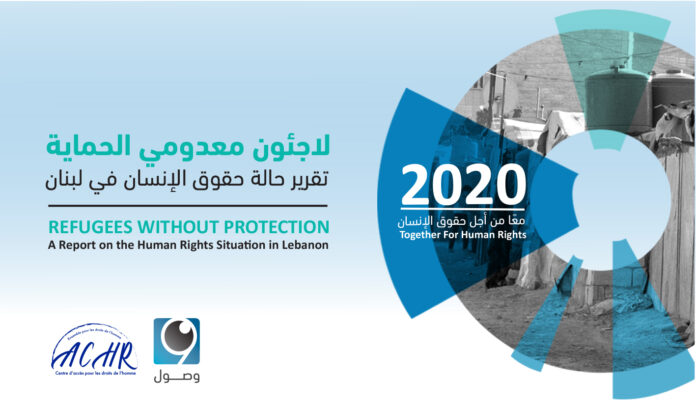Beirut – May 21, 2021
Lebanon faced multiple and intertwining crises during 2020: an economic crisis and severe inflation with the US dollar exchange rate reaching 8,400 Lebanese pounds by the end of 2020, while the US dollar rate was stabilized at 1507.5 pounds at the Central Bank of Lebanon.[1]In addition to the COVID-19 pandemic and finally the Beirut Port explosion on 4 August 2020 which exacerbated difficult conditions in Lebanon. Despite the economic crisis affecting all residents of Lebanon, it specifically impacted vulnerable groups including Syrian refugees. While their living conditions mainly deteriorated due to the economic crisis, the worsening situation in Lebanon gave the authorities additional excuses for forcing refugees to return to their unsafe countries and the COVID-19 pandemic was used by Lebanese authorities to intensify pressures and raids on camps as well as adopt discriminatory measures and decisions under the pretext of combating the virus. Meanwhile, Syrian refugee camps and settlements were attacked on multiple occasions by Lebanese citizens, causing the displacement of hundreds of families.
In this regard, Access Center for Human Rights (ACHR) published an annual report for 2020 titled “Refugees Without Protection,” shedding light on the various human rights violations against Syrian refugees it had observed and/or documented during the year 2020 as ACHR observed and/or documented 158 human rights violations against Syrian refugees in Lebanon including cases of arbitrary detention and arrest, torture and ill-treatment, arbitrary deportation, sexual violence, identity documents confiscation, forced eviction and forced disappearance, in contradiction to national laws and international treaties that Lebanon has ratified. Access Center for Human Rights came forth with a set of recommendations to the relevant actors in the refugee file in Lebanon – the Lebanese government, the UN Refugee Agency, the international community and donors, and civil society networks and coalitions – to ensure the protection of refugees in the country.
